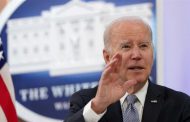Doaa Emam
Since the Brotherhood’s inception in 1928, the disputes of its wings have never been hidden, no matter how much they try to hide or deny them, as there have been recent reports of conflicts between Mahmoud Hussein, the group’s former secretary-general, and Ibrahim Mounir, the acting guide, both of them Brotherhood hawks since the revolution of June 30, 2013 that overthrew the group’s rule in Egypt.
Uniting against Mounir
Mounir learned that leaders from the Hussein group held a meeting that included a number of employees of the group’s satellite channels with Turkish security leaders in the last week of July, without coordination with the leaders of the international organization, especially after the recent crisis and Turkey’s attempts at rapprochement with Egypt and the Gulf states and its decision to stop the Brotherhood’s media activities from its territory. Mounir then announced an investigation of the elements of the opposing front led by Hussein, who is residing in Turkey.
According to Arab news agencies, Hussein and his assistants from the group in Turkey planned to overthrow Mounir. They held meetings in Istanbul that included Mukhtar el-Ashry, Medhat al-Haddad and Saber Abul Futuh, in which they agreed to coordinate with the various administrative offices to stop Mounir’s recent decisions regarding dissolving the Turkey office and the Shura Council and not adopt them, and to create a group against the international organization in preparation for the removal of Mounir from his position and the appointment of a replacement for him.
Funding is the reason
The Brotherhood’s financial file remains the cause of most of the group’s crises. Therefore, those close to the group in Turkey suggested that Watan TV, the only one owned by the Brotherhood in Turkey, would be one of the most important causes of the dispute since the appointment and election of Mounir as acting guide following the arrest and imprisonment of General Guide Mohammed Badie in Egypt and imprisoned, and then Mahmoud Hussein was overthrown, who believed that he was more worthy to succeed former General Guide Mahmoud Ezzat.
Matters have become more complicated since Mounir decided to dissolve the Guidance Office, strip Hussein of his position after abolishing the position of secretary-general, and forming a committee under the name “The Higher Committee for the Administration of the Brotherhood in Turkey” instead of the Guidance Office, to be chaired by Helmy el-Gazzar. But the Hussein front rejected this measure and disrupted the committee’s work, and then they announced the formation of a parallel committee to run the Guidance Office.
The response to Hussein’s rebellion came with a new decision to freeze the work of the Guidance Office’s management committee in Turkey, to call for elections that set a condition that those over the age of 45 should not stand for elections, and that the current leaders should not run for office, which was considered by opponents of Mounir as a coup on the Brotherhood list.
All this confusion is mainly due to the failure of the international organization to anticipate the new situation between Egypt and Turkey in light of the fluctuations of the scene at the international and regional levels, and it did not have a clear vision of the recent developments in the relations of the two sides.
Researchers of political Islamist groups expect that the coming period could witness escalatory moves against Mounir, which may actually reach the level of his isolation, as he caused major crises for the organization and did not succeed in resolving any of the outstanding issues, and he misbehaved to a large extent in response to the Egyptian-Turkish rapprochement due to his contradictory statements during his media appearances on a number of channels.
After these struggles between the hawks of the group, will the organizational structure of the Brotherhood change? This is a question that arises in light of recent events, according to a study entitled “The Organizational Structure of the Muslim Brotherhood: Features, Objectives, and the Future”. In the institutional setting, the way the group’s affairs are managed tends to be individual and personal, and the general guide and senior leaders dominate the decision-making process. For example, the Shura Council, although it comes in an advanced position in the organizational structure of the group and enjoys great powers, remains restricted and subject to the general guide.








































admin in: How the Muslim Brotherhood betrayed Saudi Arabia?
Great article with insight ...
https://www.viagrapascherfr.com/achat-sildenafil-pfizer-tarif/ in: Cross-region cooperation between anti-terrorism agencies needed
Hello there, just became aware of your blog through Google, and found ...